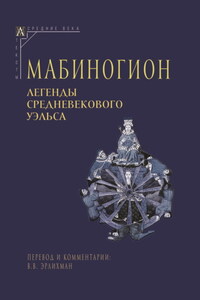CHAPTER I.
HOW MANY POUNDS THE WHOLE EARTH WEIGHS
Natural philosophers have considered and investigated subjects that often appear to the unscientific man beyond the reach of human intelligence. Among these subjects may be reckoned the question, "How many pounds does the whole earth weigh?"
One would, indeed, believe that this is easy to answer. A person might assign almost any weight, and be perfectly certain that nobody would run after a scale, in order to examine, whether or not an ounce were wanting. Yet this question is by no means a joke, and the answer to it is by no means a guess; on the contrary, both are real scientific results. The question in itself is as important a one, as the answer, which we are able to give, is a correct one.
Knowing the size of our globe, one would think that there was no difficulty in determining its weight. To do this, it would be necessary only to make a little ball of earth that can be accurately weighed; then we could easily calculate how many times the earth is larger than this little ball; and by so doing, we might tell, at one's finger-ends, that – if we suppose the little earth-ball to weigh a hundred-weight – the whole globe, being so many times larger, must weigh so many hundred-weights.
Such a proceeding, however, would be very likely to mislead us. For all depends on the substance the little ball is made of. If made of loose earth, it will weigh little; if stones are taken with it, it will weigh more; while, if metals were put in, it would, according to the kind of metal you take, weigh still more.
If, then, we wish to determine the weight of our globe by the weight of that little ball, it is first necessary to know of what our globe consists; whether it contains stones, metals, or things entirely unknown; whether empty cavities, or whether, indeed, the whole earth is nothing but a hollow sphere, on the surface of which we live, and in whose inside there is possibly another world that might be reached by boring through the thick shell.
With the exercise of a little thought, it will readily be seen that the question, "How much does our earth weigh?" in reality directs us to the investigation of the character of the earth's contents; this, however, is a question of a scientific nature.
The problem was solved not very long ago. The result obtained was, that the earth weighs 6,069,094,272 billions of tons; that, as a general thing, it consists of a mass a little less heavy than iron; that towards the surface it contains lighter materials; that towards the centre they increase in density; and that, finally, the earth, though containing many cavities near the surface, is itself not a hollow globe.
The way and manner in which they were able to investigate this scientifically, we will attempt now to set forth as plainly and briefly as it can possibly be done.
CHAPTER II.
THE ATTEMPT TO WEIGH THE EARTH
It is our task to explain, by what means men have succeeded in weighing the earth, and thus become acquainted with the weight of its ingredients.
The means is simpler than might be thought at the moment. The execution, however, is more difficult than one would at first suppose.
Ever since the great discovery of the immortal Newton, it has been known that all celestial bodies attract one another, and that this attraction is the greater, the greater the attracting body is. Not only such celestial bodies as the sun, the earth, the moon, the planets, and the fixed stars, but








